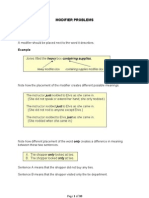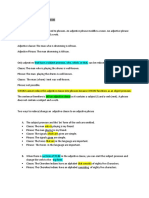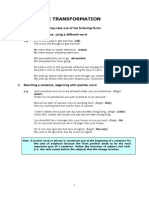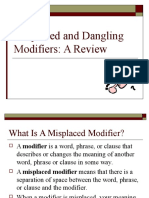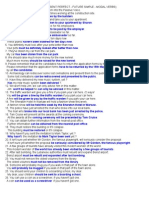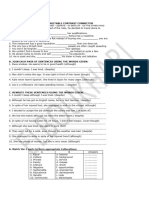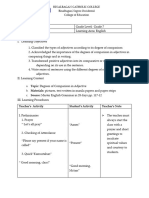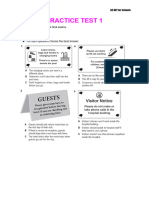0% found this document useful (0 votes)
13 views7 pagesNotes On Modifiers - PM
The document explains modifiers, focusing on their role in clarifying or describing other words in sentences. It details common errors such as dangling and misplaced modifiers, providing examples and correction methods. Additionally, it outlines types of dangling modifiers and offers exercises for practice.
Uploaded by
padostypadmoleCopyright
© © All Rights Reserved
We take content rights seriously. If you suspect this is your content, claim it here.
Available Formats
Download as PDF, TXT or read online on Scribd
0% found this document useful (0 votes)
13 views7 pagesNotes On Modifiers - PM
The document explains modifiers, focusing on their role in clarifying or describing other words in sentences. It details common errors such as dangling and misplaced modifiers, providing examples and correction methods. Additionally, it outlines types of dangling modifiers and offers exercises for practice.
Uploaded by
padostypadmoleCopyright
© © All Rights Reserved
We take content rights seriously. If you suspect this is your content, claim it here.
Available Formats
Download as PDF, TXT or read online on Scribd
/ 7
